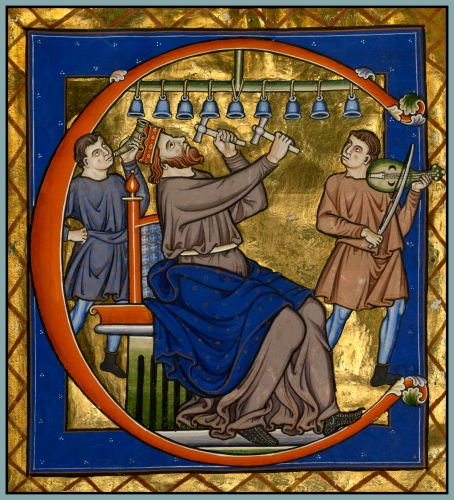What Is Music?
The medieval answer may surprise you.
The epigraph of this essay captures, as only Shakespeare can, the immense and mysterious power of music over the human person. The entrails of sheep were used to make strings for stringed instruments, and “hale,” a variant of “haul,” means to draw out by force. Thus, things as simple and earthy as wood and sheep innards can become a lute, and the flow of well-chosen, well-timed notes from the lute becomes a melody that “moves” us, or rather, moves something deep inside us. If the melody is particularly fine and perhaps accompanied by a sonorous voice singing equally fine poetry, we are not only moved but enchanted and uplifted—toward the heavens, as though the spirit has been “haled” right out of the body.
Shakespeare, however, was a Renaissance poet, and his imagery in this passage—“Now, divine air! now is his soul ravish’d!”—reflects a post-medieval emphasis on the artistic qualities and emotional effects of music. Scholars of the Middle Ages were more concerned with music as a metaphysical, rather than aesthetic, reality. This is not at all to say that medieval people were indifferent to music’s singular beauty and tremendous emotional energies; on the contrary, their lives were filled with the power and pleasure of sacred, poetic, and folkloric music. But beauty and emotion were not the essence or ultimate significance of music; those were to be found in the deep harmonies of Creation, and in the even deeper harmony of human nature.
Keep reading with a 7-day free trial
Subscribe to Via Mediaevalis to keep reading this post and get 7 days of free access to the full post archives.




